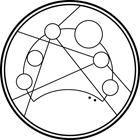|
Some beginner help
|
|
| awakening | Date: Thursday, 25 Apr 2013, 3:45 AM | Message # 1 |
 Stowaway
Group: Users
Messages: 78
Status: Offline
| I tried writing a sentence!
...anddddd now I'm a tad confused.
amwoʒ ɪm okið galifɹɛjmɪ.
So that's what I've got.
I'm a little confused, and was about to write a big post asking all these questions... but it's probably easier if you just correct it first, then I ask for clarification 
Thanks!
Dʒɑʃjuə
Message edited by awakening - Thursday, 25 Apr 2013, 3:45 AM |
| |
|
|
| StrangerComeKnocking | Date: Thursday, 25 Apr 2013, 8:07 AM | Message # 2 |
 Rihays, Master of Many Names
Group: Administrators
Messages: 431
Status: Offline
| I will now observe a few things:
You got word order correct....more or less...
You got verb tense correct (if you were going for simple past tense).
Some notes:
Small typo: galifɹɛjmɪ -> gɑlifrɛjmi
You forgot to include subject and object markers.
Adverbs always appear before the verbs, adverbs, or adjectives they modify.
I was going to show you how it is supposed to write, then I figured I would let you take this information and attempt it yourself and ask questions. 

"Everybody knows that everybody dies." -River Song
|
| |
|
|
| awakening | Date: Thursday, 25 Apr 2013, 9:16 AM | Message # 3 |
 Stowaway
Group: Users
Messages: 78
Status: Offline
| Okay, so..
amwoʒ ɪmoz gɑlifrɛjmi okiðəɬ
At the very least, I added subject and object markers!
we'll see how much of a mess this one is hehe 
Dʒɑʃjuə
|
| |
|
|
| StrangerComeKnocking | Date: Thursday, 25 Apr 2013, 10:52 AM | Message # 4 |
 Rihays, Master of Many Names
Group: Administrators
Messages: 431
Status: Offline
| Not much of a mess, just need to do a little rearranging. Like I said, adverbs always come before their verbs. So even though it doesn't make much sense in English, it would correctly read:
"Gallifreyanly (in Gallifreyan) wrote I this."
It's like Shakespearean poetry.

"Everybody knows that everybody dies." -River Song
|
| |
|
|
| awakening | Date: Thursday, 25 Apr 2013, 2:31 PM | Message # 5 |
 Stowaway
Group: Users
Messages: 78
Status: Offline
| Ah, and now I see!
Otherwise, it's good?
I'll tackle another tomorrow and we'll see how I go with what I've learned.
Thanks Rihays!
Dʒɑʃjuə
|
| |
|
|
| StrangerComeKnocking | Date: Thursday, 25 Apr 2013, 6:55 PM | Message # 6 |
 Rihays, Master of Many Names
Group: Administrators
Messages: 431
Status: Offline
| Yessir.  And you are most welcome. And you are most welcome.

"Everybody knows that everybody dies." -River Song
|
| |
|
|
| Kim | Date: Friday, 26 Apr 2013, 6:50 AM | Message # 7 |
 Human
Group: Users
Messages: 22
Status: Offline
| Woo! My first attempt at a Gallifreyan sentence. Made when I was tired. Hope it dosen't have too many mistakes...
od ım fo kodəɹ
I tried saying I am sleepy but I couldn't find a word for sleepy. So I put not (fo) and awake (kodəɹ) together.
I saw on the guide that the verb comes first, then the subject, so I put od/to be first, then im/I second. So I'm hoping that I'm right when I say it translates to: to be I not awake.
please tell me anything I messed up on?
|
| |
|
|
| StrangerComeKnocking | Date: Friday, 26 Apr 2013, 4:32 PM | Message # 8 |
 Rihays, Master of Many Names
Group: Administrators
Messages: 431
Status: Offline
| Well, first you need verb tense. Since "od" is ever-present, you only really have three choices. Assuming you mean "I am sleepy" it would be -ad-
Next, as I explained to Josh, you also need subject and object markers. Even though "kodəɹ" is an adjective, it still takes the object marker.
"Fo" does not change.
Otherwise, it looks good. 

"Everybody knows that everybody dies." -River Song
|
| |
|
|
| Kim | Date: Friday, 26 Apr 2013, 5:19 PM | Message # 9 |
 Human
Group: Users
Messages: 22
Status: Offline
| So, it would be ad ım fo kodəɹəɬ ? Or is kodəɹ an indirect object, and turn into kodəɹɔm ?
Message edited by Kim - Friday, 26 Apr 2013, 5:19 PM |
| |
|
|
| awakening | Date: Saturday, 27 Apr 2013, 9:10 AM | Message # 10 |
 Stowaway
Group: Users
Messages: 78
Status: Offline
| Some things based on what I learned above, Rihays will correct me if I'm wrong:
You added the object marker but forgot the subject marker.
So,
ɪm would become ɪmoz.
Also, to give the sentence the present tense with the affix -ad-, you attach it to either side of od, so it would end up being odad or adod, depending on preference.
Just some things I'm fairly sure of 
Rihays, sorry if I made a mistake!
Dʒɑʃjuə
|
| |
|
|
| Kim | Date: Saturday, 27 Apr 2013, 10:39 AM | Message # 11 |
 Human
Group: Users
Messages: 22
Status: Offline
| Odad ımoz fo kodəɹəɬ. Wow, Gallifreyan is a tricky language. Fowad?
|
| |
|
|
| LicoricePlease | Date: Sunday, 28 Apr 2013, 1:28 PM | Message # 12 |
 Guest
Group: Moderators
Messages: 454
Status: Offline
| Yeah, that's right. Both your sentence and your sentiment.

|
| |
|
|
| Lexi-Rae | Date: Monday, 13 May 2013, 3:53 PM | Message # 13 |
|
Human
Group: Users
Messages: 6
Status: Offline
| I'm going to try for a sentence, okay?
"I will learn this if it kills me!"
ɛzɛjɹdaz okiðəɬ [if?] aɬɪɬkloɾinɪjɛ ɪʃəɬ!
As I see it, it looks like "Will-learn-I this {if?} kills-me it!"
How'd I do?
Message edited by Lexi-Rae - Monday, 13 May 2013, 4:01 PM |
| |
|
|
| StrangerComeKnocking | Date: Monday, 13 May 2013, 4:25 PM | Message # 14 |
 Rihays, Master of Many Names
Group: Administrators
Messages: 431
Status: Offline
| Well, first off, I'm not sure what that first word is. :/
You certainly have the right idea about ɛ- coming first as a pronoun marker. (Feel free to ask any questions on anything if you're not sure.)
To learn -> wɪrsu
ɛwɪrsu -> I to learn
-ak'- -> "will"
ɛ (I) + wɪrsu (to learn) + w (vowel harmony) + ak' (will [pers.]) + ɪk' (will [univ.]) -> I will learn
okið (this) + əɬ (subject marker) -> this (Very good! *clap*)
klorinı -> to kill
Quote (GME)
[I]f you are speaking using either 1st or 2nd person (I, we, you) at any point, you may only use future tenses. If you are using the third person for both “if” and “then” any tense can be used.
SO...
klorinı (to kill) + j (vowel harmony) + ak' (will [pers.]) + ɪk' (will [univ.]) + i (it) -> it will kill
ım (I) + əɬ (object marker) -> me
If...then... are simple enough words and are placed quite obviously.
Jos (if)
Ṱəm (then)
In English, we generally omit "then" as you so eloquently demonstrated in your sentence. In Gallifreyan, both "if" and "then" are required. This means you can put either clause first. So your sentence could look like:
Ṱəm ɛwɪrsuwakɪk' okiðəɬ jos klorinıjakɪk' ıməɬ.
Or:
Jos klorinıjakɪk' ıməɬ ṱəm ɛwɪrsuwakɪk' okiðəɬ.
Quote (Note)
Don't forget Vowel Harmony (GME 1.1) or Lenition (GME 1.2) when stacking your affixes.
I don't think I missed anything. o_O Questions, I assume?

"Everybody knows that everybody dies." -River Song
|
| |
|
|
| Lexi-Rae | Date: Monday, 13 May 2013, 5:42 PM | Message # 15 |
|
Human
Group: Users
Messages: 6
Status: Offline
| Okay, well, first off, I got all of my words from the document thingy and it would appear that they are different? So my first word was supposed to say "to learn" as well but obviously doesn't. *whoops*
Yeah, okay, again, don't trust the document.
I didn't know you could attach "it" to that word, okay, okay cool! I'mma have to look up the guide for that. I'm assuming you did that for parallel structure, correct me if I'm wrong about that.
Actually, no, no questions, I get this. I ACTUALLY GET THIS! :D
Hey, thanks a ton, this is so much fun, even though I totally screwed up I'm loving it. Okay, I have to look on the website for your dictionary thing then and use that instead! That's all. I'll do that. I'll totally do that.
AHHHHHHHH I'VE BEEN STUDYING THE LANGUAGE ALL DAY BACK FOR MORE SSTUDYING SO I CAN GET IT RIGHT!
|
| |
|
|








